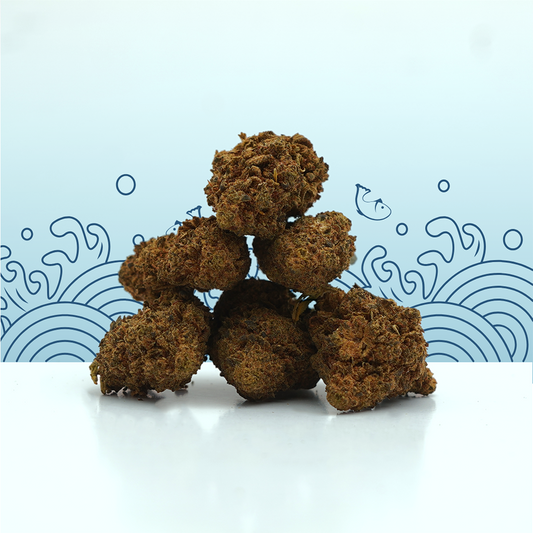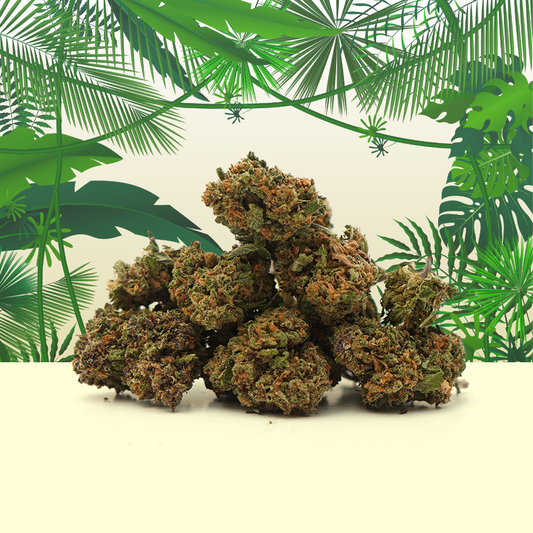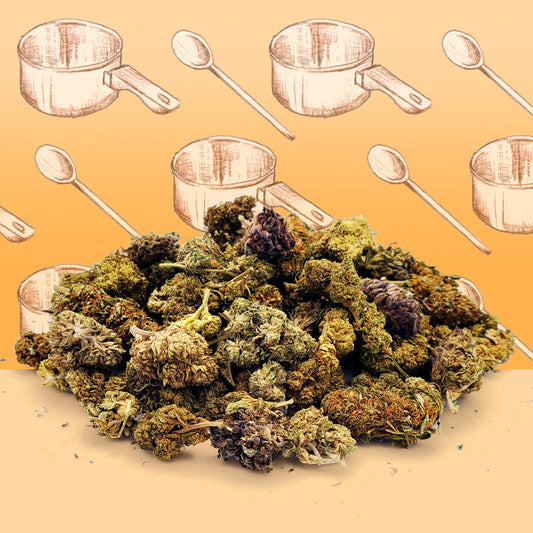No, CBD doesn't make you high. It's a substance extracted from cannabis and designed to harness some of the effects of cannabis without the downside. THC, on the other hand, gives you a high and intense mental activity. A product developed with a limited amount of THC would enable you to relax while remaining lucid. Mama explains it all.
The difference between CBD and THC: which one gets you high?
Beware of confusion: to the naked eye and by smell, cannabis THC and CBD are as similar as two drops of water. Both come from the same plant: cannabis sativa, yet there is a notable difference. It's all a question of molecules and reactions within the body. Although THC (tetrahydrocannabinol) and CBD (cannabidiol) influence the body's endocannabinoid receptors, they do not act in the same way.
THC and CBD are isomeric molecules, i.e. they have the same atoms, which makes them all the more similar. However, the molecular chain is not arranged in the same order, which makes all the difference. This change in order does not trigger the same effects on the brain.
What's more, THC and CBD do not interact with the same receptors. THC binds more to CB1 receptors, which regulate the nervous system, causing psychoactive effects. CBD, on the other hand, is taken up by CB2 receptors, mainly responsible for the immune system.
Are there any CBD products that get you high?
To obtain a complete entourage effect and an effective product, it is advisable to consume CBD with a low percentage of THC. This notion is necessary for the substances to act as much on the nervous level, in small doses, as on the immune level. In this way, we obtain an effective and complete product to respond to many problems in complete legality, because the THC level is controlled.
Research is making it possible to study in depth the aspects and capacities of the Sativa cannabis plant. Thanks to numerous studies, new, more potent products are appearing in CBD stores.
Cannabis Sativa contains over a hundred active ingredients known as cannabinoids. Isolated, each molecule presents different effects that could help certain people, such as CBG or CBN.
What's more, some scientific research has led to interesting associations and discoveries by modifying molecular chains, such as H4CBD. These modifications make it possible to find new products which, for some, can give you a high. Since these products respect strict manufacturing processes and THC levels set at Ireland, they remain fully available in stores for the time being.
Legal status of CBD in Europe
CBD legality and regulations vary from country to country. In Ireland, the sale of CBD is authorized under certain conditions, including a THC level of less than 0.3% in plants and zero in end products, including synthetic cannabinoids. Whereas the EU sets the threshold at 0.3%.
In Switzerland, on the other hand, legal cannabis can contain up to 1% THC, exceeding European standards. However, some European countries are opting to ban synthetic cannabinoids, or even CBD in general, despite the growing awareness of its potential positive effects.
This diversity of regulations reflects governments' different approaches to the social, medical and economic challenges of legalizing CBD and its derivatives. In addition, the World Health Organization prohibits the presentation of CBD products as medicines without upstream validation from organizations. That's why it's so important to consume CBD products from safe , reputable brands like Mama Kana.
The distinction between CBD and THC is crucial, despite their visual and olfactory similarities. Their divergent molecular composition results in different effects on the body. While CBD offers benefits without psychotropic effects, making it legal, THC is recognized as a narcotic. Mama Kana is a boutique specialized in CBD that scrupulously respects regulatory levels. We are committed to offering you quality products.




![Banana Cream CBG 🍌 [Greenhouse]](http://mamakana.com/cdn/shop/files/banana.jpg?v=1683038126&width=533)
![Bubba Kush CBD 🫧 [Greenhouse]](http://mamakana.com/cdn/shop/files/Bubba_fond_4b55b9bd-2083-406f-8843-1229994bb3ec.png?v=1738679473&width=533)




